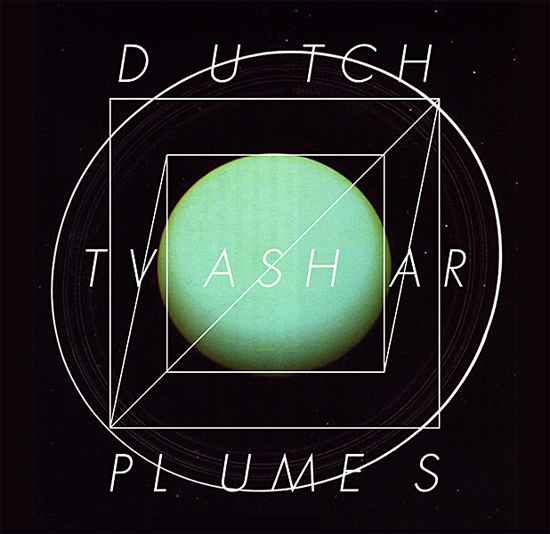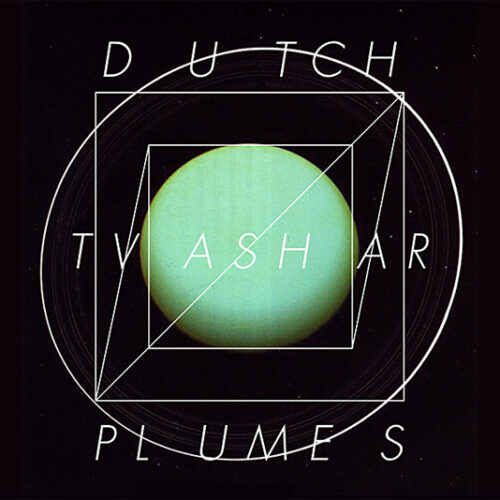Thanks to the methods he used to construct this month’s Diversions 1994-1996 EP – dissecting his personal collection of jungle mixtapes and weaving their beatless segments together – most commentators discussing Lee Gamble’s current output through PAN do so in terms mainly weighted toward dance music. Which is accurate enough: jungle and its precursor, hardcore rave, are all-pervasive presences on Diversions, occasionally bubbling up from beneath its surface ambience to express themselves as ecstasy-addled whoops and rushy streams of hi-hats, and its full-length album companion Dutch Tvashar Plumes is dominated by exquisitely expressive forms of abstract techno. But Gamble’s recent music also strongly links into a lineage exploring space, sound and memory that runs through both Lynch’s Eraserhead (that insidious, hollow hiss hinting at the mechanical horrors lurking just out of sight) and The Caretaker’s menacing 1999 debut Selected Memories From The Haunted Ballroom (in which James ‘V/Vm’ Kirby stumbled around The Shining‘s empty Overlook Hotel, visualising the ghosts of its former residents in an attempt to obscure the profoundly isolated, blood-stained reality).
There’s also a sonic connection with the latter especially: Diversions‘ violent disfigurement of its source material mirrors The Caretaker’s similarly rough treatment of ballroom songs, and as V/Vm Kirby released a sprawling set of recordings under the name The Death Of Rave that share a similarly drained atmosphere as much of Gamble’s music. Like Kirby’s grim march through the haunted corridors of the Overlook, Dutch Tvashar Plumes feels like a post-industrial free party space left behind long after most partygoers have departed. There might be a few left, the usual end-of-night casualties: six or seven bodies in grubby jeans with hoods up, strewn among the detritus on the floor – some awake and sucking on rollies, some passed out in crooked positions that you imagine can’t be too comfortable – while a hard core of dancers giddy with adrenaline and amphetamine pull increasingly uncoordinated shapes to increasingly strung-out music.
If anything, Gamble himself is definitely one of the latter – the tracks on Dutch Tvashar Plumes are strange and skeletal things that continually drift in and out of conscious awareness. They latch strongly onto particular rhythms and motifs for a while at a time – sometimes for a few minutes, sometimes mere bars – before the eyes roll into the skull and they dissolve back into a state of pure sensation, blissfully unaware of the physical activity they’re still ostensibly engaged in. (We’ve all been there at least once, let’s be honest.) Not for nothing is one of the album’s highlights – a skittery rhythm accompanied by paper thin slivers of human voice-alike synth – titled ‘Coma Skank’. The dusty four-to-the-floor thumps that animate ‘ExpRand Trace’ blur in and out of focus, occasionally receding into the distance to lurk behind stringy drones. Towards the track’s end they’re pulled roughly into the foreground by a dessicated techno loop that coalesces everything together for a few seconds of dancefloor bliss before crumbling into dust.
But just as strong a presence on Dutch Tvashar Plumes, looming around the few humans left desperately grinding away, is the actual rave space itself. Again like Selected Memories From The Haunted Ballroom, or Emptyset’s recent Medium EP (which found the Bristol duo literally forcing low-frequencies through a building in order to trigger resonance), these tracks feel like echolocation imprints of imaginary warehouses, knackered old buildings and basements. Percussive sounds scattered through the album’s tracks bound off their topography, returning to the listener joined by the scooped-out roar of wind whipping through broken windows and sub-bass creaking through loose door fittings. ‘Overund’s pitchbent chime tones – somewhere between Tibetan singing bowl and the woozy glug of a swirled glass of liquid – ripple and rebound off one another as though echoing around a vast empty hall. They’re joined gradually by shuffling percussion that registers as near imperceptible pressure, as if heard from a party going on next door. ‘Tvash Kwawar’ begins in much the same way, muffled enough to feel piped in from some distant location, but gradually ascends into a dancefloor track of sorts whose loopy core melodies pirouette around each other in a tentative dance. They’re texturally incredibly rich, recalling by turns the intricate sound design of Editions Mego – unsurprising given Gamble’s background in academic and generative electronic music – and the post-rave meanderings of Autechre (fans of Amber will find a huge amount to love here).
Indeed, the sort of trajectories taken by Autechre and their contemporaries in the early-to-mid 90s have been reference points for much of this year’s best electronic music. With the current scattering of strong dancefloor genre narratives and an increasingly disparate array of artists pulling in every different direction, attention has again turned strongly to producers on the fringes using club forms as the basis for some wonderfully exploratory music. (That’s why, in a move that might have seemed implausible until only recently, labels like PAN have been lauded in publications well outside the usual niche experimental/dance music circles). But where the likes of Autechre swiftly abstracted club music into post-human realms, what’s striking about this current crop of artists – Gamble himself, PAN labelmates Heatsick and NHK’Koyxen, Emptyset, Actress, Container, Morphosis and more – is that their work rarely leaves the body behind. In the intricacy of its construction – as well as cyberpunk mouthful track titles like ‘Skorokhodz’, ‘Plos 97s’ and ‘Kuang Shaped Prowla’ – Dutch Tvashar Plumes is certainly akin to the work of Autechre, Pita, Hecker et al. But it’s never that austere: here these methods are used to peer into the human experience of rave, rather than subtracting it to leave the impossibly complex dance moves of pure data. No matter how zoned-out and abstract Gamble’s music gets, press close enough and you can feel its heartbeat.



